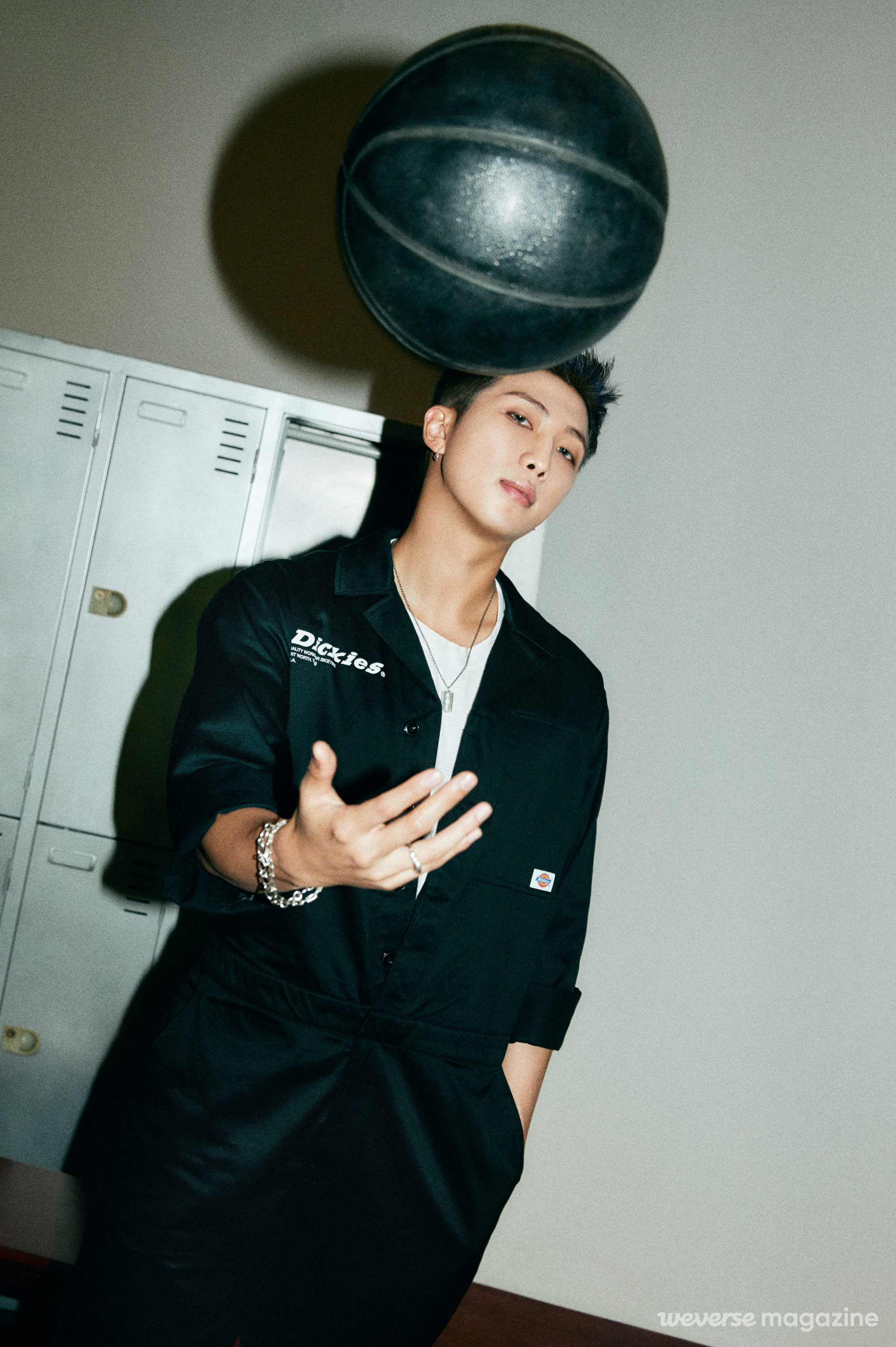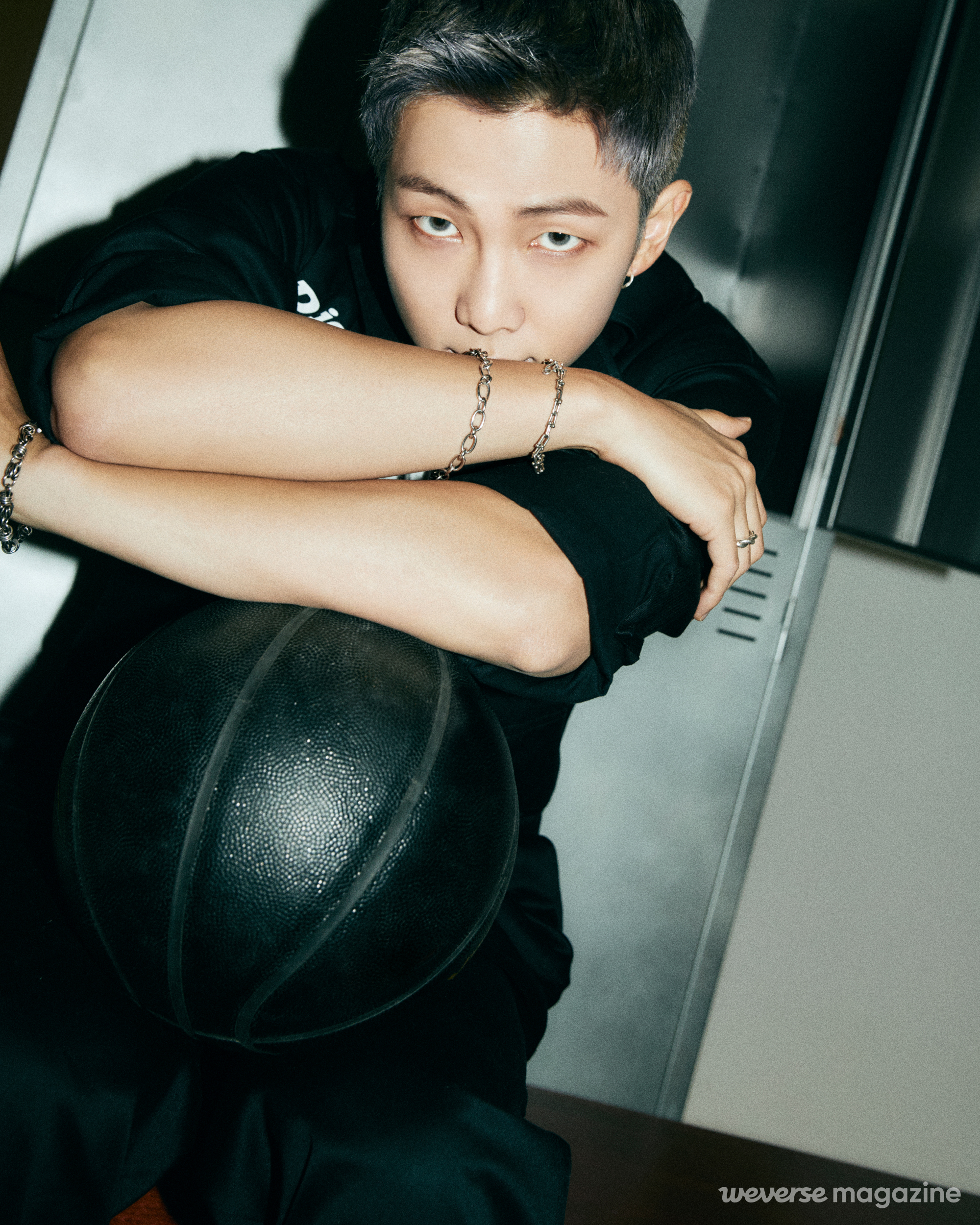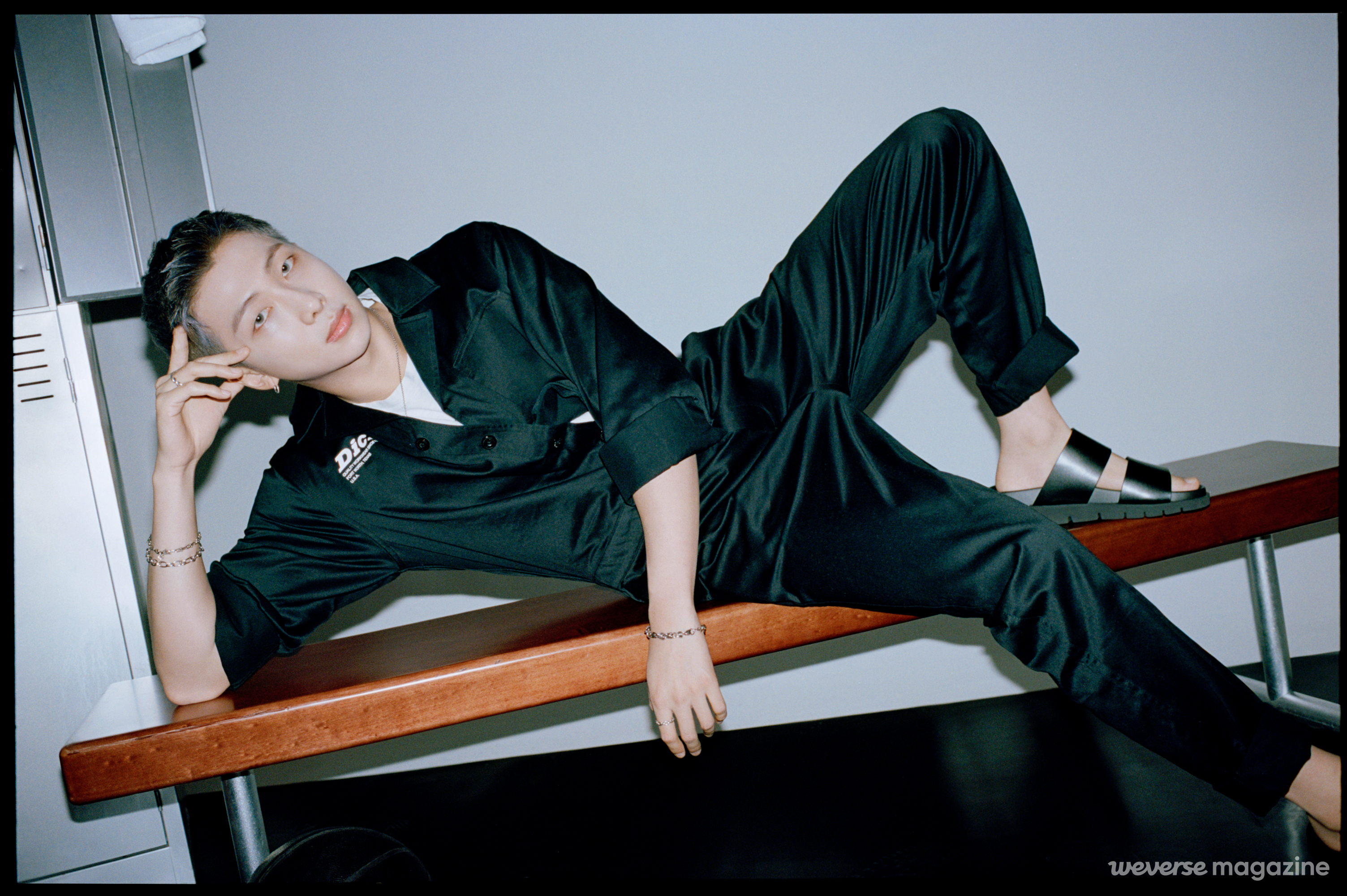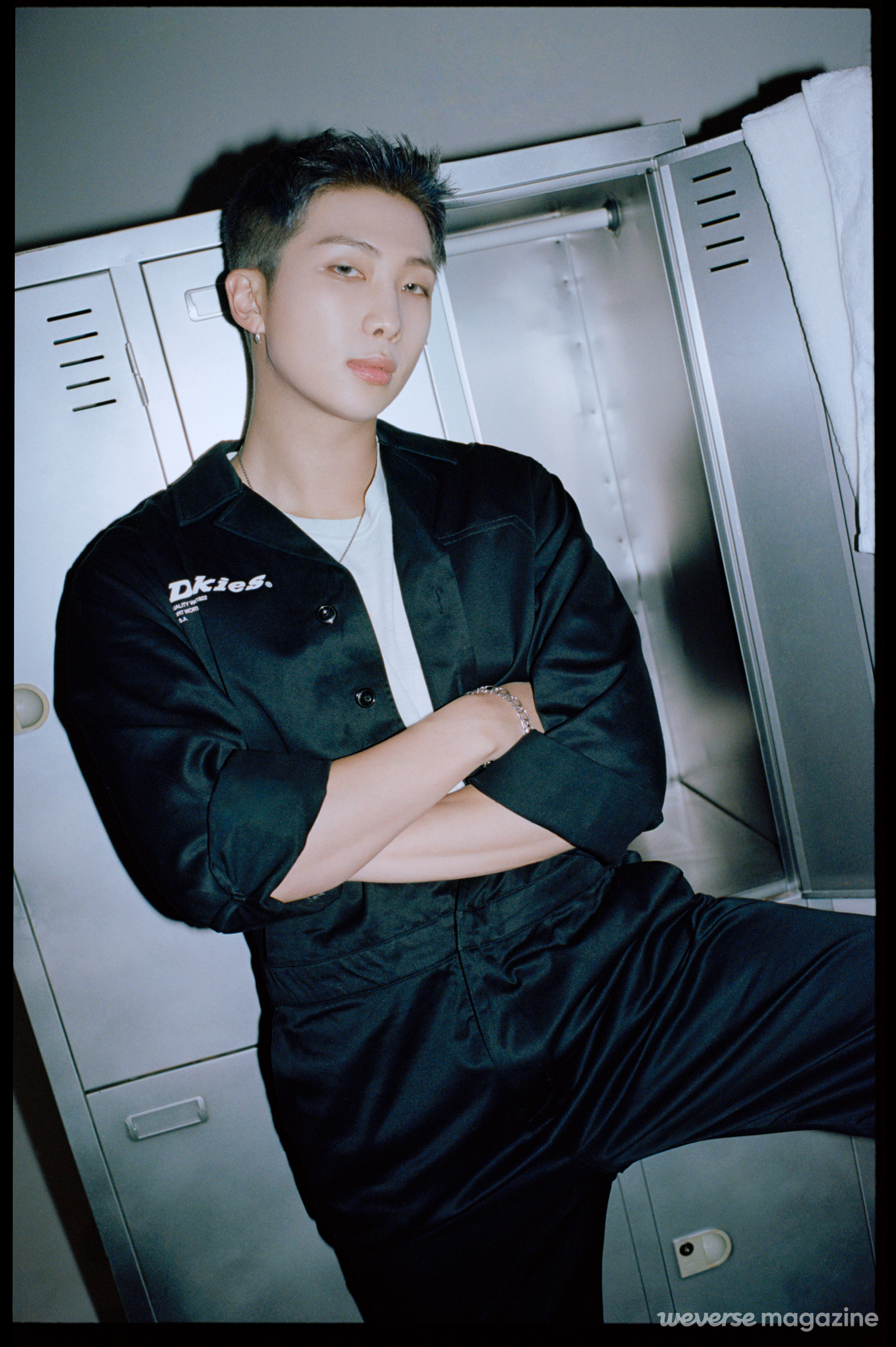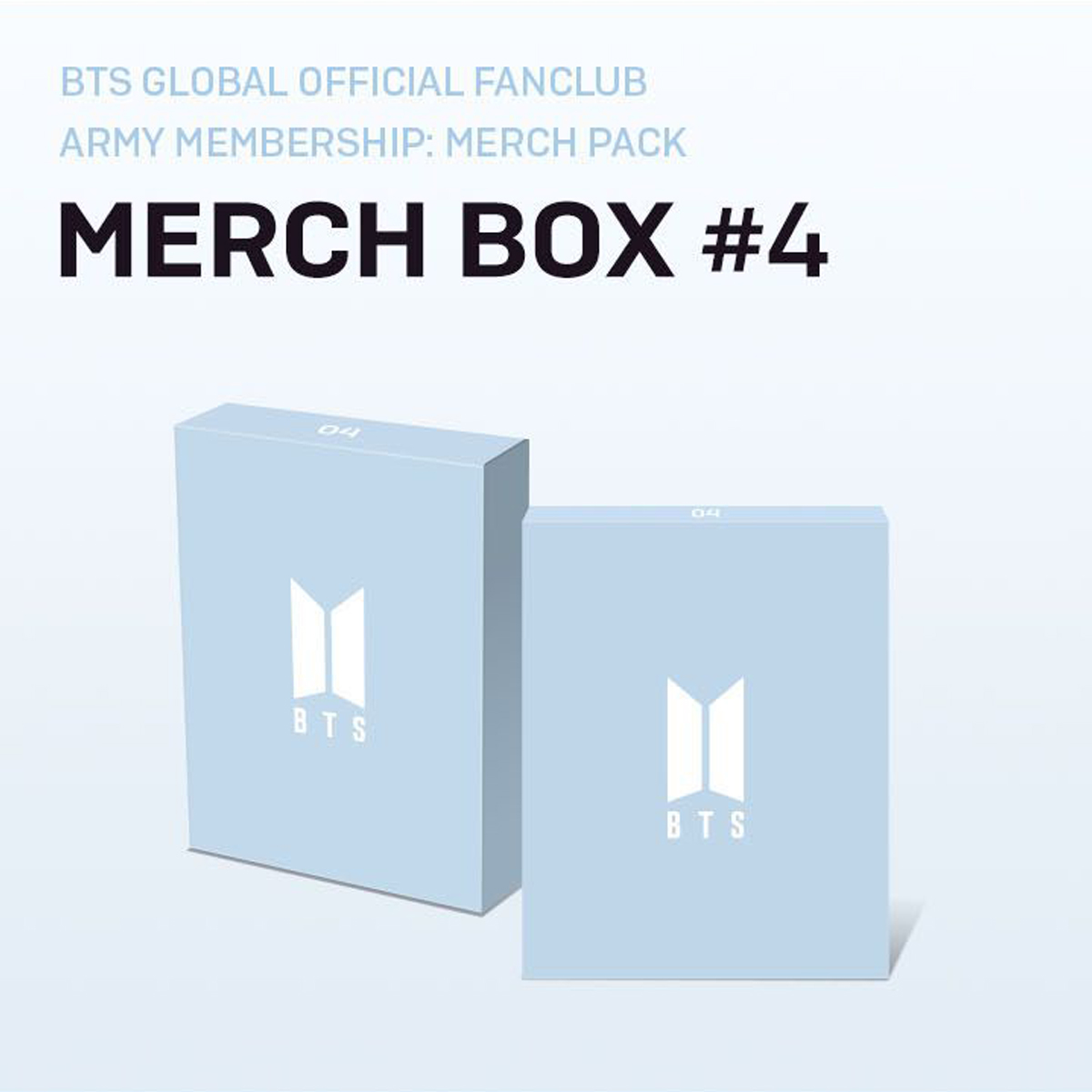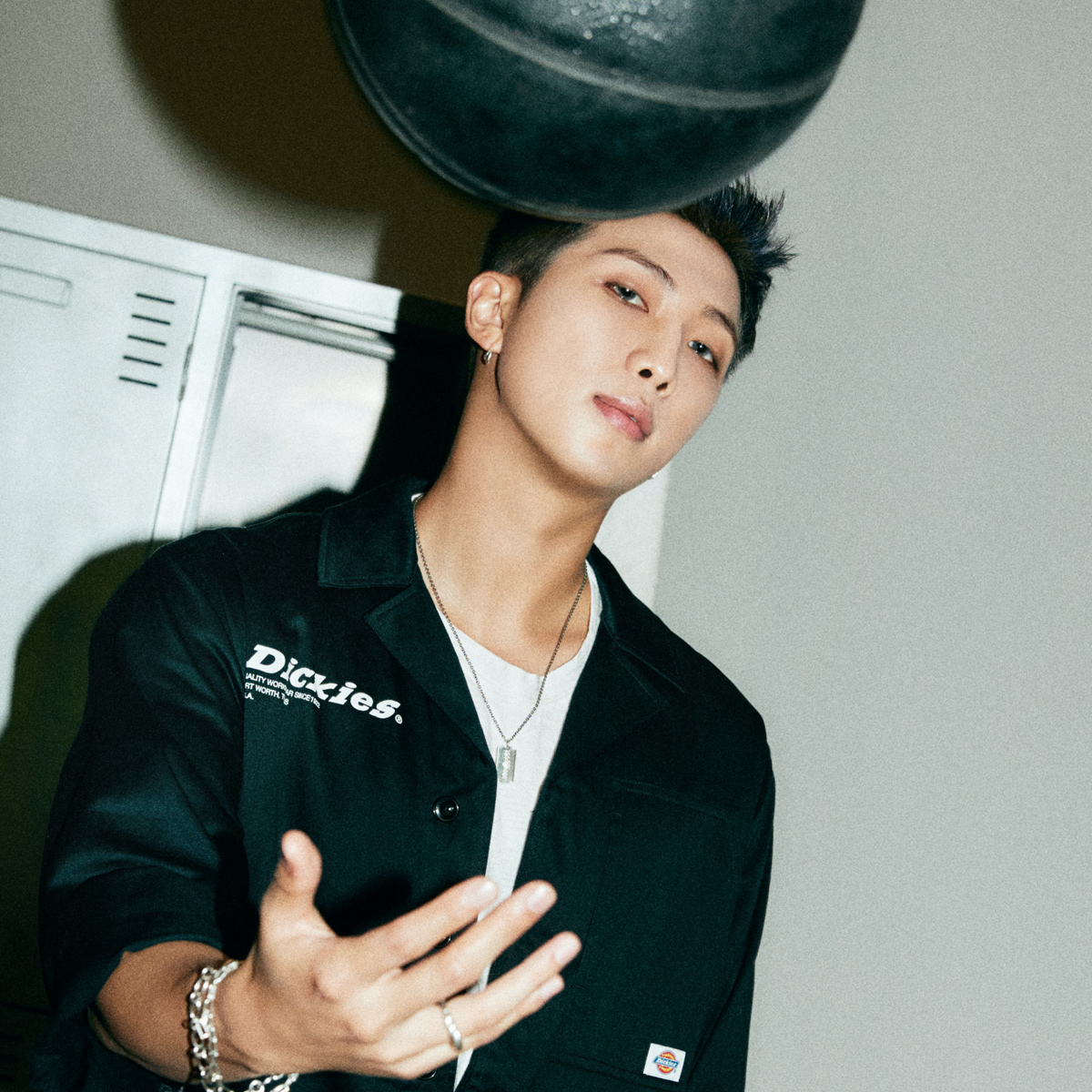
INTERVIEW
RM: “I hope I’m on my way somewhere”
BTS Butter album release interview
2021.07.30
There are two gears in his life that RM shifts between: when he has to pick up speed as the leader of a worldwide hit-making group, and when he makes his way back home and slowly cracks open some artist’s catalogue. Let’s take a look at the time in between, at the young artist’s journey to seek out his own canvas.
Do you still work out? Your stature looks very different.
RM: It’s been around one year? Since I started doing it four times a week without fail. It’s like my lifeline. (laughs) Since, if you exercise, your body gradually improves. I like to feel like I’m doing something and getting better. If you look at other people posting their progress, you can see their bodies change dramatically, but I’m not very strict about my diet, so it’s not like that for me. (laughs) Still, I can feel my frame changing bit by bit.
I saw in the “ARMY Corner Store” video uploaded to YouTube for the 2021 FESTA celebration of your eighth anniversary that your life is focused on doing work and making appearances these days. Has following that repetitive routine led to any changes in your life?
RM: My daily routine has become very clear-cut. Now that it’s been exactly a year since I started doing this mid-last year, I kind of think, So is this how people live? I have to go to work and come home, then there’s things I need to do there, and things I have to keep up with like exercise. And same for checking out exhibits. And so I thought my nature itself has changed a lot over the course of a year, but I don’t know whether it’s good for me as a creator.
Why’s that?
RM: There was so much that happened with BTS, but with the current situation, sometimes it felt like those things were just things happening on my phone. When I’m listening to other music or watching something I’ll sometimes think about how I would do it, but my life is what it is right now, so I can only draw on things from my own life.
In that case, how did it feel to keep up the energy for your Grammys performance and for everything related to “Butter”?
RM: I was really happy that we added one more thing to our list of accomplishments. I think our team really needed the work itself. It made me realize we still have things left to achieve. And I want to thank ARMY above all others for making all of this possible. I’m Korean, so I’m no stranger to finding joy in accomplishment. (laughs) It was really satisfying and nice. It would’ve been better if we got a Grammy, but so what if we didn’t? In the end, getting it means you have one more trophy at home, and after that your daily routine repeats.
How was writing the lyrics for “Butter”? Your performance with SUGA works to kick the energy of the second half of the song up a notch, but I also think, strikes a balance to improve the song as a whole. Your short rap feels like a fusion of American pop and BTS’s distinctive style.
RM: That’s the part I spent the most time on. Even though the song’s in English, I thought we should make it feel like our own, so we kept the original but put a little of our own flavor in at the end.
I felt that fine-tuning turned out well. It’s short, but I think it would’ve been a very different song without that part.
RM: It’d feel like something’s missing if it weren’t there, right? (laughs) I felt like we absolutely had to have it in there. There’s something different about us from American pop stars. Our DNA is different.
How was making “Permission to Dance”? You can count on one hand how many BTS songs have a message as positive as in that song.
RM: Right. They talked about putting some rap in “Permission to Dance” while we were working on it, but we said it would never work. I have more fun when I’m singing and dancing than anything else. I think this song was one of the few times that I felt like I was just having fun while singing and dancing on it. It feels amazing to give into the song with your whole body and just laugh instead of thinking about it too much. I think that’s the power of the song. I wasn’t stressed preparing for it like I was with “Butter.” When it came to “Butter,” I had to think about what we should show off and how I could do that. I’m always careful not to be a problem within the group dynamic. But I didn’t really have to worry about that with “Permission to Dance.” Honestly, I felt like I only needed to add just a dash of the enjoyment I felt.
After the unimaginable continued success of “Dynamite” and “Butter,” this song feels a little more laid back.
RM: Oh, this is really fun. Just like that. And there’s a line in the lyrics that says, “We don’t need to worry / ’Cause when we fall we know how to land.” The message is universal, but you could say it’s also something BTS has been saying all along.
You talked about “2! 3!” on “ARMY’s Corner Store,” saying, “2015 to 2017 was a tough time for us and our fans.” Were you able to say that because you ended up knowing how to “land”?
RM: What I do can be thought of as a sort of business—a person-to-person kind of business. That’s why I want to be as honest with ARMY as I can be, almost obsessively so. They say it can’t happen in the world of K-pop, and there’s an aspect of good faith to that because I don’t want to worry the fans, but I want to tell them about the things we’ve been through as much as I can. Another reason I talked about those times was that I wanted to pay off my debts to a lot of people. To pass over this story like it never happened would be like saying “that’s not us.” And because it’s in the past. I think that, since it’s in the past, and since we’re doing all right now, and since those days were clearly necessary, I think we have to be able to talk about just how difficult a time that was.
It feels like that was something you wanted to convey to your fans, too.
RM: Sometimes we’re artists whose souls are full to our very cores, sometimes we’re meticulous office workers, and sometimes we’re part of the hyper-patriotic “do-you-know club.” We’re many things all at once—that’s why we talked about persona and ego. It’s sort of painful and lonely to want to talk about these things to this extent, but I guess that’s who I am. I want to express myself in full.
Would you say that the song “Bicycle,” released during 2021 FESTA, shows who you are as a person? You talked about your everyday emotions using a bicycle as a metaphor.
RM: I’ve faced a lot of pressure while making music throughout my life to move ahead a little more or make music that stands out better, from minor things like my rap technique to bigger things like trends. I wanted to be good at rapping and I wanted some recognition. In that sense, you could say “Bicycle” is somewhat defiant. I wanted to release a song to celebrate FESTA, but the subject matter is really important to me specifically. Bicycles hold an important place in my heart, so that’s just what I ended up writing about. The song’s something like a compass, telling me where I’m at right now, I feel like. My present-day life is the input, so that was going to end up being the output one way or another.
There’s a part in the lyrics where you say, “When you’re happy, it makes you sad.” I imagined you riding your bike and contemplating your life.
RM: My feelings kind of go to extremes whenever I ride my bike. My personality used to run to both extremes sometimes, but it also comes back to me again on its own when I ride a bike. When I ride my bike, I’m free from the pressure of the things I’m supposed to feel and think about. I don’t care if people recognize me, and that’s the closest I get to feeling free, mentally and physically—when I’m riding fast and feeling like I’m up on a cloud.
In my case, there’s a big bookstore in my neighborhood, and there’s times when I’ll walk all the way there by myself and think over what kind of person I am while choosing which books to buy. Somehow it makes me think of that.
RM: I read a book by Lee Seok Won from Sister’s Barbershop recently. He was contemplating why he likes bookstores. He remembered how not only is it noisy, but everybody’s staring at their books and not looking at anyone else, and there’s a kind of freedom in that. I really sympathize with that. So I make time to go to the bookstore and spend a little more time reading.
I end up talking to myself just by looking at all the book covers at the store. In a way, it’s contemplation on contemplation, but it seems to be an especially necessary time for you.
RM: I think I’d be pretty bored without it, since I’ve been too sheltered lately. Read! Work out! Go to galleries! Ride my bike! (laughs)
So writing “Bicycle” was an experience that you had to go through anyways, even though we’re not sure where you’ve come from, where you’re at now, or where you’re headed to.
RM: Exactly. It was exactly that kind of milestone of a song for me, and I think I kept that in mind to some degree when I released it for FESTA. I agreed to do something at first, but then I asked myself what I should do and that came to mind immediately: Let’s just do something about bikes.
Even the music has deep connections to all the music you’ve ever listened to, from folk to the hip hop and Korean indie scenes.
RM: You’re right. I drew on music from the people who’ve had an impact on my life—artists I’ve been listening to lately, like Elliott Smith and Jeff Buckley, and groups like KIRINJI.
It’s interesting how the end result is a song whose style is difficult to attribute to any one era. Neither the sentiment nor the sound is retro, nor do they reflect current trends.
RM: I, and our team, are, you could say, at the forefront of pop, so after I made “Bicycle” we wondered whether we should go with it. But that’s actually why I ended up doing it this way instead. Because that’s what my life looks like right now. It’s good for me just to get to know myself this way, but I don’t want to trap myself, either. On the other hand, I’m interested in artists from all around the world who are totally different from me. There’s even people who make music on a whim and who don’t care about the genre whose music I’m interested in now. It’s—how should I say this? Anyway, I’m at some place in my life, I guess. (laughs)
Last year, in an interview with Weverse Magazine, you said, “I’m just 27 in Korean age.” I think “Bicycle” might be your own response to that statement—the song of someone who grew up listening to Drake in Korea.
RM: You got it. Exactly. Drake’s the one who made me think I could sing, too, back in 2009 (laughs) and that’s what brought me all the way here. In the past I wanted to do something just like Drake—he influences Western music as the musical style he’s after changes. But because I don’t live my life the way they do, I can’t make the exact same music as them.
And for that reason, I figured it’s the kind of song that would end up on the playlists of people like you, as it has a style that can express that sort of person’s overall feelings more than any specific genre can.
RM: That’s how it usually turns out eventually. I sometimes think this way: Can’t I put “Bicycle” on the same mixtape as some songs that are made totally off the cuff, like I just talked about? I wish I had that kind of flare or image when I made songs, but nowadays I’m really slow at making them. I can’t think of lyrics as well as I used to, either. I have more avenues to absorb new things, and yet the output coming from inside of me is ridiculously limited, and extremely slow. They say there’s plenty of stories of artists from the past going up to their canvas and being unable to pick up their brush and screaming, “Who am I?” That’s sort of how I’m feeling. I’ve been working on a mixtape since 2019, but I haven’t finished that many songs.
Well, maybe it’s because the direction you want to take with your lyrics has changed. That is, that you’re trying to express the ideas you’ve built up inside yourself, instead of your experiences or social commentary.
RM: That’s why I can’t write lyrics as fast as I used to. I don’t know what I’m doing, so I have no choice but to just write first. And that’s why I think Yoongi is such an amazing person. I mean, how does he make that many songs, and so well? Maybe it’s because he takes a producer’s point of view, but I can’t do that. Not only am I jealous, but I also think the starting point when I’m making music has to be the lyrics. I just—I hope I’m on my way somewhere. But that’s how I always feel (laughs) so when I listen to my stuff from two years ago now, it already sounds old.
You’re featured on eAeon’s “Don’t,” which boasts impressive lyrics as well—lyrics that start with the color of waves and end with an image of pebbles. It seem like it’s your interest in art that allows you to keep developing such visual images.
RM: I can’t say for sure, but it’s likely a strong reflection. I had seen an article where an artist said that pebbles are the perfect form: a rock worn down over and over in a series of incidents and coincidences, made into some round shape in the end. It said the artist collected pebbles for a long time, saying pebbles are so perfectly smooth without any edges, although they’re neither perfect circles nor ovals. Also, I absolutely love Lee Qoede. I saw a quote in a book about his art: “Let’s become entangled. Let us stand united. Let’s not argue. And let’s become pebbles in the new leadership narrative of my country.” He wrote it in a letter while he was working during the country’s liberation period. I thought it was, what, a very modern way to express things, for someone who lived through the chaotic political circumstances of 1948 to want to become a pebble. I felt like his words still have meaning—like they live on. I guess those two artists’ use of the word “pebble” made a very lasting impression on me.
I was impressed how the relatively large waves give way to the image of small pebbles, and then you end the flow with lyrics like, “Don’t take that name away, the one only you know,” and “I hate being just any wildflower,” about a small presence that is defined by others.
RM: Yes, it was fun. I once thought how people’s relationships are like crashing waves, and I think that mixed together with my thoughts about pebbles and it came out all at once. There’s a sentence I wrote down a long time ago while I was thinking by the sea. I thought, Is there any color in the waves? When people talk about waves crashing in, what waves are they talking about? The blue waves, or the white waves? I went completely overboard with emotion when I was thinking that (laughs) but again, that’s just me. So I wrote this one sentence—“I wonder what color the waves are”—and listened to the music eAeon gave me, and it sounded to me like fog rolling over the ocean. It was really easy to start writing the lyrics since the sensory perception of that sentence overlapped with what he gave me. It was a so-called “aha moment” (laughs) and whenever that happens, the lyrics come out of me all at once. It only took about an hour and a half to write the lyrics. I thought of more lyrics later on, but I ended up sticking with the first ones.
What are you looking for that you’re thinking that much?
RM: In the end, it’s really important for me to ask about who I am, and I want to express who I found myself out to be, but I’m having a really difficult time because I don’t know if what I found is right. So for now, “Bicycle” is also the result of collecting the selves I found who I think represent the best of me. Even while making a song like “Bicycle,” I have to convey—how do I put this? It’s just about me, this kid from outside the big city—an essence that I can’t get rid of, I guess. I can’t let go of the kid who used to perform in Hongdae. It’s not really something I want to express or hold onto; it’s my essence, so I don’t really have a choice. (laughs)
You’ll just ride your bike, anyhow.
RM: Exactly. Exactly that. (laughs)
Article. Myungseok Kang
Interview. Myungseok Kang
Visual Director. Yurim Jeon
Project Management. Yejin Lee
Visual Creative Team. Sunkyoung Lee, Yeonhwa Cha(BIGHIT MUSIC)
Photography. LESS / Assist. Hyungsang Kim, Donghoon Park
Hair. Som Han, Mujin Choi, Daeun Lee, Leeyoung Lim
Makeup. Dareum Kim, Seonmin Kim, Yuri Seo
Stylist. Hajeong Lee, Hyesoo Kim, Heeji Seo, Jihoon Lee, Minji Son
Set Design. Seoyun Choi, Yehui Son, Ayeong Kim(darak)
Artist Protocol Team. Jingu Jang, Subin Kim, Jungmin Lee, Dasol Ahn, Juntae Park, Seungbyeong Lee, Hyeonki Lee, Daeseong Jeong, Jaekeun Song
Copyright © Weverse Magazine. All rights reserved.
Unauthorized reproduction and distribution prohibited.
Unauthorized reproduction and distribution prohibited.
Read More
